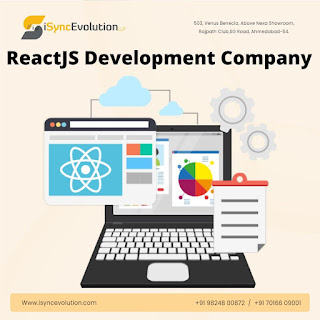Laravel for E-commerce Website Development
Laravel Ecommerce development opens doors to efficient, feature-rich online stores. Its framework's adaptability and robust architecture cater seamlessly to the intricacies of e-commerce. This article explores the dynamic interplay between Laravel's capabilities and crafting exceptional online shopping experiences.
Benefits of Using
Laravel Ecommerce Development
Laravel offers a plethora of advantages for crafting
e-commerce platforms. From its clean and expressive syntax to its active and
supportive community, Laravel stands as a cornerstone for modern web
development. Its MVC pattern ensures efficient separation of concerns, enabling
developers to focus on creating smooth, interactive user interfaces and robust
backend functionality.
Setting Up Your
Environment:
Before delving into the intricacies of Laravel
Ecommerce development, it's crucial to establish your development
environment. Installing Laravel is a breeze using Composer, a dependency
management tool. Its modular structure promotes flexibility in including only
the components your project requires. Furthermore, configuring the environment
sets the stage for smooth e-commerce development, ensuring seamless
interactions between the application and its components.
User Authentication
and Registration:
Ecommerce hinges on user interaction. Laravel's built-in
authentication scaffolding simplifies user registration and login processes.
This module supports customizable authentication features, allowing tailored
user experiences that align with the uniqueness of your e-commerce venture.
Payment Integration
for Seamless Transactions
One of the cornerstones of any e-commerce platform is secure
and seamless payment processing. Laravel excels in integrating payment
gateways, exemplified by platforms like Stripe. This guarantees your customers
a hassle-free experience, cementing their trust and ensuring smooth financial
transactions.
Testing and
Deployment for Confidence and Reach
To ensure your Laravel Ecommerce development thrives,
rigorous testing is essential. Laravel facilitates this through its robust
testing tools. By writing unit tests for critical features, you guarantee that
your application performs as intended, bolstering its reliability. Deployment,
the grand finale, is made straightforward with Laravel's documentation and
community support, helping you take your e-commerce venture live.
Conclusion
In the world of Ecommerce, Laravel proves to be an
invaluable tool for crafting seamless, engaging, and secure online shopping
experiences. Its versatility, security measures, and integration capabilities
make it a preferred choice for developers aiming to elevate their Ecommerce
ventures. As you delve into the realm of Laravel Ecommerce development,
remember that continuous exploration and learning will lead to innovation and
excellence.

Comments
Post a Comment